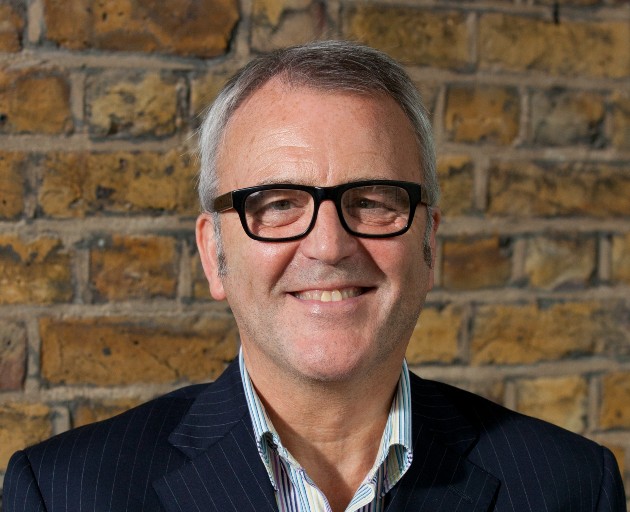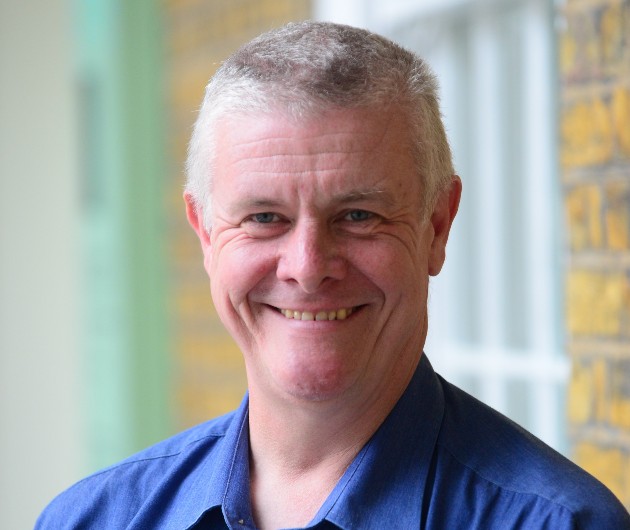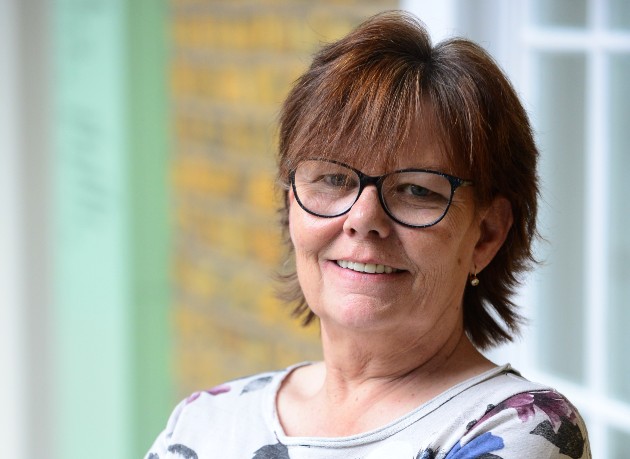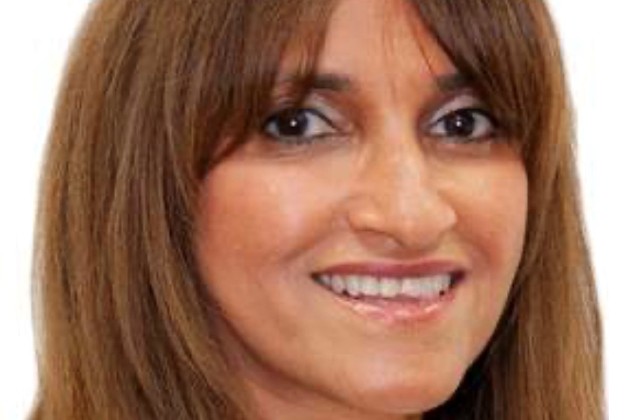Gordon Lees

Using anecdotes and humour can be a powerful way to get your message across
In my first attempt at public speaking, I was anxious, my legs actually shook. But we need to be able overcome that anxiety. The only way to do that is to bite the bullet and just do it.
One of my first public speaking events was in Hartlepool Town Hall and it was a discussion about anxiety – the irony was not lost. But that event was a turning point because I recognised my own anxiety by talking about it.
After that, I decided to seek opportunities for public speaking. At RCN Congress over the years, I’ve made a point of getting up at least once during the week to speak in the debates, and each time it has become easier.
Doing presentations as part of my RCN work – in committee and branch meetings – has helped me develop that confidence too. I'm not fearful if something needs to be said.
Speaking in public has given me confidence in other areas of my work as well. I served on RCN Council for four years and I would never have envisaged myself doing that previously.
My top tips for public speaking are:
- Know your subject – that’s absolutely crucial and will help instil confidence.
- Prepare what you’re going to say. It can be a succinct sentence, but that can make a big impact. You can stop people in their tracks and make them think with just one comment.
- Using anecdotes and humour can be a powerful way to get your message across – humour can disarm people.
- Just do it – your mind might tell you not to, but don’t play along with that game.
Jeremy Davies

The best way to boost your confidence is to practise
I’ve spoken at many events in my time as an activist, including the RCN UK Joint Representatives Conference and I’ve spoken on stage as a voting member at RCN Congress. Also I’ve done interviews for BBC Radio Wales, BBC Wales TV and other media outlets. But, when I was younger, I would never have thought I could have the confidence to do this.
I’ve always been quite shy. But when I found people had faith in me to speak publicly, I took it on as a challenge to improve and get better at it.
Doing this has taught me a lot. I’m now capable of doing more structured presentations and I’m more confident in dealing with people, which has been important in my role as a steward. It’s helped me develop as a rep and led to opportunities to do things I wouldn't have dreamed of, so I would always say, go for it.
I think the best way to boost your confidence is to practise. There is no limit to how often you can rehearse something in front of a mirror, or with friends or family. You could record yourself practising so you can see how you do, and if any changes are needed.
I would say you don’t need to inherently be a confident, extroverted person to speak publicly. I think anyone can do it if they have something to say.
My top tips for public speaking are:
- Be prepared – make sure you have a very clear idea of what you want to say and make brief notes if necessary. Type them, don't write them, and make the font big enough to read without trouble.
- Make sure to use clear and appropriate language, nothing that’s going to lose the focus of others or that you’re going to trip over on stage.
- If there is a Q&A session, be sure you have some knowledge of possible counterarguments to your points.
- Remember that no-one is there to watch you fail, or to laugh. They have come to see you because you have something to say. It's important to know that and to be kind to yourself.
Linda Rumbles

Very few of us will be asked to speak on something we have no knowledge of
I’ve done a lot of public speaking and presenting in my time, from presentations at health boards to corporate inductions. I would say I’m a relatively confident person, but even when my stomach is churning with nerves before an event, I don’t let my face show that.
Working in the health sector, we all deal with situations we don’t expect, and we just get on with it. I think that’s a good skill to carry through to public speaking and presenting also - if something goes wrong, or someone asks a question you don’t expect, you can deal with it with confidence.
Very few of us will be asked to speak on something we have no knowledge of. We do, by default, have skills, experience and knowledge we can use in public speaking, but you should always prepare.
I practise and time myself, to make sure I’m not going overtime or speaking so long that it’ll lose the audience’s focus. This also allows the script to go into my head, so I don’t have to be looking at notes all the time. I do this in front of a mirror, too.
It can also help to find either a family member, friend or another rep to practise with. There'll be plenty of people that will give you half an hour of their time. Ask them to give you their feedback. That’s a good way of developing confidence.
My top tips for public speaking are:
- Practise in the mirror – and make sure you lift your head.
- Use humour – but don’t go straight into it. Judge what the tone is like and keep humour to the subject matter.
- Consider what to wear in advance. If you feel uncomfortable, you will look uncomfortable.
Cyzel Gomes

I get a buzz from public speaking
I’ve always spoken openly about issues that affect me and others. I speak for myself, but also on behalf of those sometimes afraid to speak up, such as nursing students or people from ethnically diverse backgrounds.
However, I’m not always a confident, outgoing person. I’m an omnivert, which is both an extrovert and an introvert. I can go from socialising a lot, to needing to be alone to recharge my batteries. You don’t need to be perfect, and there’s no failure in public speaking. Every time is good preparation for the next time.
It’s taken me a while to realise, but I get a buzz from public speaking. However, I am naturally quite an emotional person, so I must keep checking my notes to remain focused, rather than becoming overwhelmed. I’m the perfect example of a human swan – looking calm and collected on the surface, while paddling frantically under the water.
Every time I’m preparing to speak or present, the imposter comes to life and tries to convince me I’m not good enough, but my confidence is slowly building.
My top tips for public speaking are:
- Find your people – have a few that you can discuss your presentation or speech with, and who will give constructive feedback.
- Write it down – what’s in your head is valuable and can be lost in a cloud of emotion.
- Don’t compare yourself – and don’t be afraid to reach out to those who you think are good speakers and ask for tips.
Rabina Tindale

Being able to speak publicly is part of leadership
Public speaking is not something I’ve always felt comfortable doing. I used to be quite shy. I would attend a conference, listen to others speak and think “I could never do that”. However, as my career has progressed, I have taken the opportunity to push myself.
At the most recent RCN Congress, I hosted a session for around 120 members and contributed to debates on stage. I’m also the former Chair of the RCN Emergency Care Association, which demanded elements of public speaking and presenting, too.
In my position now as a senior leader and coming from an ethnic minority background, I need to help instil this confidence in others like me, and be a role model. Being able to speak publicly and present is part and parcel of leadership. Growing up in a South Asian household, women were not encouraged to express their opinion, especially if they went against hierarchy or men. This certainly affected my confidence in speaking up, but going through the different roles in my career has helped me address this.
My top tips for public speaking are:
- Know your background information – do as much research as you can on the subject matter.
- Don’t feel you need to be perfect – actually, not being perfect is more authentic and relatable.
- Accept that people might ask you questions that you might not know the answer to, and that’s OK. You could use this as an opportunity for debate or dialogue by asking others for their opinion.
More information
Want to become an RCN Changemaker?
Changemakers are reps who’ve agreed to be contacted about opportunities to contribute to pieces of work that aim to improve the experience of the wider rep community.
If you’re interested in joining your RCN rep colleagues to become a changemaker, you can sign up on the reps hub.








